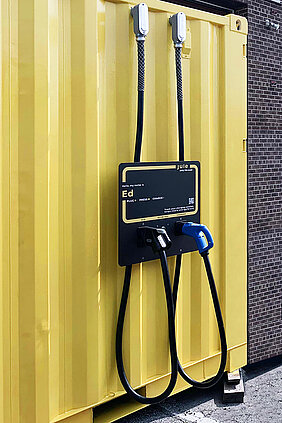With the support of the Canadian government, three companies were able to install 34 fast charging stations along a 3,000 Kilometer stretch of the 7821 Kilometer long Trans-Canada Highway this year. In hopes to further promote the usage of emission-free vehicles, Bender technology from Hesse, Germany is installed, ensuring electrical safety while charging. These devices were also featured during Volker Bouffier’s visit at Bender Canada.
The 17.3 million dollar charging-network in Ontario and Manitoba allows drivers to charge their electrical vehicles in about 20 minutes. These charging stations are equipped with a lithium-ion battery storage system, which will not put stress on the grid, developers say.
The project is funded by contributions from Natural Resources Canada under the Canadian Energy Innovation Program, as well as private investments from eCAMION, a Toronto-based energy storage system developer, Leclanche, an energy storage provider, and the Geneva-based power producer SGEM.
Industry experts and government officials have agreed that developing and installing fast-charging infrastructure will not only reduce emissions from the transportation sector, but is a crucial step in sparking electric vehicle sales in Canada.
The new charging stations consist of an energy storing system that uses large-format lithium-ion batteries and multiple outlets, allowing several vehicles to be charged simultaneously.
A single-phase supply voltage of DC 240-V is used in order to charge a DC 600 V-lithium-ion battery bank. The new stations will be equipped with Level 3 chargers, which typically use a 480-V system to fully charge a vehicle within 30 minutes. During the process of converting to DC 600-V, an isolated network (IT system) is generated.
After a series of practical tests, Bender Canada demonstrated solutions for safe charging that convinced companies like eCAMION to support the integration of Bender insulation monitoring devices under the name ISOMETER® in this project.
